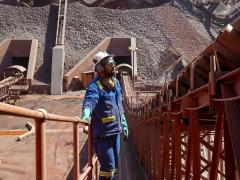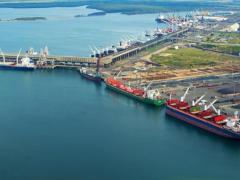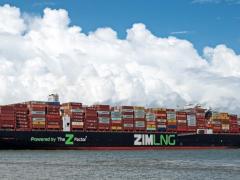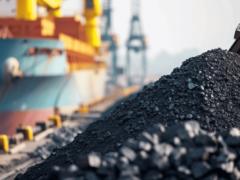Technology, new systems and pressure from consumers and legislators to reduce logistics emissions are changing the way shippers move goods. Bulk cargo logistics is inherently carbon intensive. Substantial volumes of fossil fuels are burned by trains, trucks and vessels transporting millions of tons of goods. At ports and terminals, heavy machinery handles cargo operations, and storage facilities, along with conveyors, contribute to overall energy consumption and emissions. Although it is the most efficient form of bulk transport, maritime shipping accounts for 11% of the entire global transport industry’s CO2 emissions. Starting in 2027, ships’ non- compliance with International Maritime Organization annual greenhouse gas fuel intensity targets will require the purchase of “remedial units” to cover their emissions – a financial liability higher than the cost of the European Union’s Emission Trading System, which will allow emission trading between companies. The good news is that shipping companies, transporters and rail operators carrying bulk cargo may be able to offset some of the costs of reducing their carbon footprint. A McKinsey survey of 250 global shippers and providers found that the majority had started integrating green shipping into their logistics programmes. “Importantly, more than seven in ten said they would be willing to pay more for green shipping products,” state the authors. However, the report warns that new decarbonisation technologies present a range of challenges beyond cost, such as disposal of residual assets, strains on OEM capacity, production-capacity limits on biofuels, and uncertainty around the total cost of ownership. “Many incumbent companies are testing low-carbon technologies but are reluctant to scale until there is greater technological certainty.” Closer to home, transport in South Africa is the third- largest emitting sector, with more than 90% of transport sector emissions arising from road transport, according to the Decarbonising South Africa’s Transport Sector report by the National Business Initiative. The report says transport faces the dual challenge of decarbonising while improving transport as a service for consumers and enabling other sectors to decarbonise. A strong case is made for biofuels. “Of all levers that must be pulled to get the transport sector to net-zero, the one that is likely to have the largest financial impact on the end-user of transport as a service is the greening of fuels. “The use of green fuels is highly OPEX-intensive, with a fuel premium of up to 2.1x for e-ammonia, 2.5x for e-methanol and 1.7–2.1x for e-kerosene, even in 2050,” the report points out. Information technology and artificial intelligence are also helping shippers to reduce their carbon footprint through optimised route planning and better management of stockpiles. More emphasis is being placed on sustaining the physical environment, starting with the habitats surrounding ports and including the noise and dust generated by the loading and unloading of bulk materials. ER
Greener horizons ahead for the industry
Comments | 0












